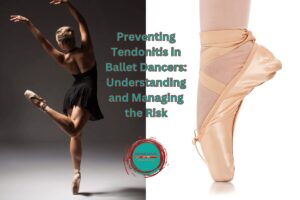 This week, until 17th April it is Parkinson’s Disease (PD) awareness week. It is estimated that by the year 2020 the number of people with Parkinson’s in the UK will increase by 28%. There is still no cure for PD and medication and exercise are seen as the gold standard treatment approach. PD is a progressive neurological disease of the central nervous system where a loss of dopamine producing cells in the area of the brain called the substantia nigra lead to symptoms such as rigidity, slowed movement and tremor to name a few. It is estimated throughout the research that by the time of diagnosis you have already lost approximately 70% of your dopamine producing cells. It is NEVER too early or too late to start physiotherapy for Parkinson’s disease. Being pro-active about your treatment plan is vital in delaying progression and onset of the physical symptoms and improving your quality of life.
This week, until 17th April it is Parkinson’s Disease (PD) awareness week. It is estimated that by the year 2020 the number of people with Parkinson’s in the UK will increase by 28%. There is still no cure for PD and medication and exercise are seen as the gold standard treatment approach. PD is a progressive neurological disease of the central nervous system where a loss of dopamine producing cells in the area of the brain called the substantia nigra lead to symptoms such as rigidity, slowed movement and tremor to name a few. It is estimated throughout the research that by the time of diagnosis you have already lost approximately 70% of your dopamine producing cells. It is NEVER too early or too late to start physiotherapy for Parkinson’s disease. Being pro-active about your treatment plan is vital in delaying progression and onset of the physical symptoms and improving your quality of life.
The world of Parkinson’s physiotherapy treatment is changing… and it’s exciting! Exercise should be considered as a type of medicine, with the ability to improve symptoms and delay further physical progression of the disease. Often after a diagnosis of PD, people tend to move a lot less. This decline in movement may be caused due to falling, depression, anxiety and/or problems with mobility. This all leads to a cycle of moving even less, weakness, losing cardiovascular health, balance and a loss of confidence. Over the past few years there has been a lot of research into the benefit of completing high intensity exercise as a tool to protect the brain and delay the onset of further symptoms. When completing high intensity exercise which is considered to be approximately 80% of your maximum level, you release a hormone called Brain Derived Neurotrophic growth factor. This hormone is not only helping protect our brain, but it also helps with the uptake of Dopamine. With the increase in uptake of dopamine, people find they feel so much better and their movement is much improved after high intensity exercise. You take your medication everyday, so you should also be exercising every day!
Often there is also a sensory deficit where the person suffering from PD is unable to recognize that they are moving slower and/or smaller. The body continues to scale down movement without recognizing, until festination (feeling stuck in the mud), falls and a quiet voice results. Physiotherapy plays an important role in breaking this cycle and improving functional ability levels through incorporating six key principles into training. A quote that I often use with my patients is ‘don’t practice until you get it right, practice until you cannot get it wrong!’ this is fundamental to the treatment approach where we think about ‘re-wiring’ the brain to ensure that we correct the movement pattern to make the body utilise its muscular and skeletal system efficiently and effectively, restoring an improved pattern for all types of daily tasks such as walking, sit to stands, bed mobility and stairs. This is achieved by making neuro-plastic changes within the brain using key training principles and success is where that rewiring has occurred and your movement changes not just in the clinic room but also in daily life.
Here are the six key training principles that need to be followed in order to reap the maximum benefit of exercise in PD. Most people see a significant positive improvement following high intensity input over a four week programme.
- High Amplitude Movements
- High Intensity sessions
- Repetitive
- Functional training
- Specific
- Meaningful Training
It really doesn’t matter at what stage of Parkinson’s you are, these principles remain the same and are adapted to your ability level. Along with this type of training we also need to incorporate stretching to increase the muscles that we know get tight through changes in posture such as the hip flexors, hamstrings and calf complex.




Comments
One Response
Hi Stephanie,
I couldn’t agree with your article more. It is an exciting time to be working in this space. Would be keen to chat further about your program.
Mel (PD Warrior)